Premium Only Content
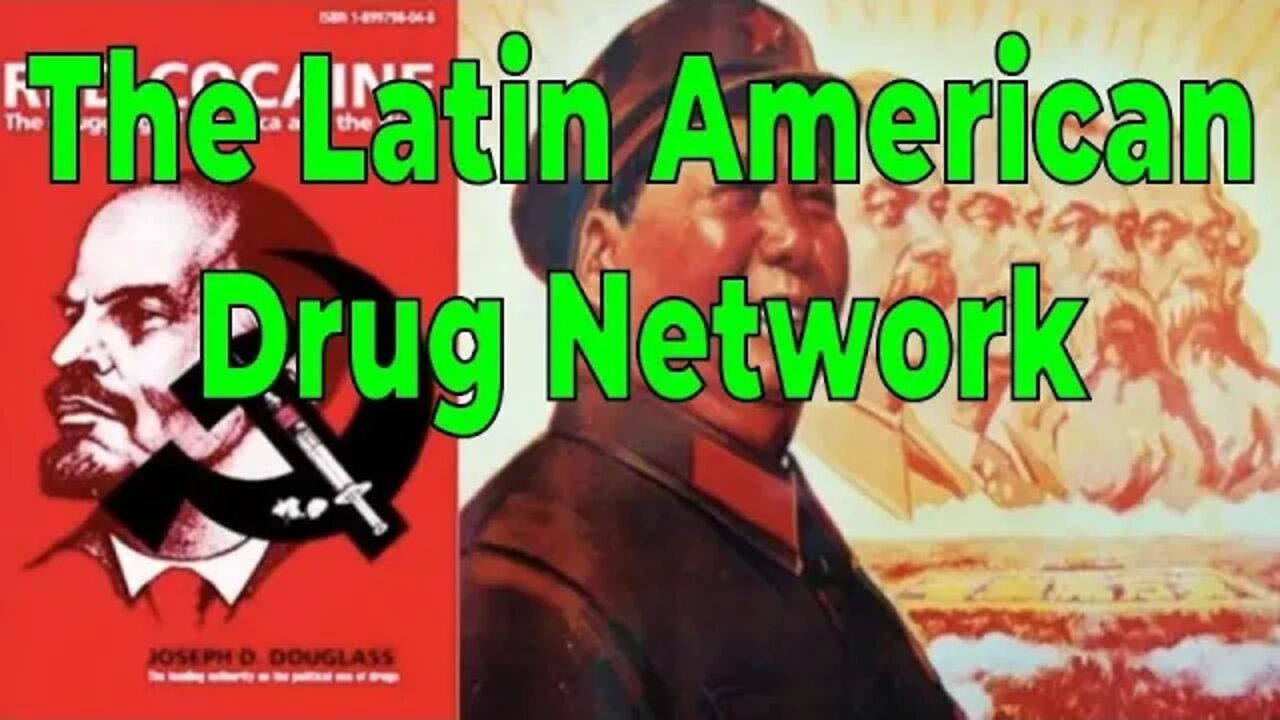
Red Cocaine: The Drugging of America and the West – Joseph D. Douglas – Chapter 3
Chapter 3: Building the Latin American Drug Network
Buy: https://www.amazon.com/Red-Cocaine-Drugging-America-West-dp-1899798048/dp/1899798048
Publisher: Edward Harle Limited; 2nd edition (June 1, 1999)
Please support the creation of important audio books and articles via:
Paypal: paypal.me/mario1337
Bitcoin: 35iDtUzZq33CoJhmK38TdV9Xunvs7TKmzX
Ethereum: 0xf396A0e10911b4BC975CfE80117412D484B24d1e
I found a way to produce books in a decent quality automatically a lot faster, but the web service produces costs while layout and creation of the videos use up a lot of time. Thank you!!
The book shows how international communism has used opium and cocain as a powerful weapon against the West. Dr. Ray S. Cline, Ph.D., a former Deputy Director for Intelligence for the CIA, said: "A powerful and well-documented case of a deliberate policy decision, first by authorities in Beijing and then in Moscow, to contribute to the decay of American society."
References to Chapter 3:
1 For a more detailed account, see We Will Bury You, op. cit, pages 45-50.
2 Biographies of Fidel Castro describe the problems he had obtaining military equipment in 1959 from the Soviet Union, Yugoslavia, and the United States. Some arms and ammunition were obtained
from Belgium in mid-1960. The first Czechoslovak weapons arrived in late 1960. Tad Szulc, Fidel: A Critical Portrait (New York: William Morrow and Company, Inc., 1986), page 498. Peter G. Bourne, Fidel: A Biography of Fidel Castro (New York: Dodd, Mead & Company, 1986), pages 188-189.
3 'Revolutionary centre' is the formal designation of a region selected and then prepared to promote the revolutionary situation throughout the zone in which the centre is located and to support Soviet military operations in the event of war. The basic criteria applied in establishing revolutionary centres are the need for such centres to have political influence throughout the zone, to supply revolutionary forces for deployment in other countries in the zone, to supply sabotage material for use throughout the zone, to be a centre for the education of cadres, and to be directly useful for Soviet military operations in the case of global war and for surrogate forces.
4 In the summer of 1963, a Czechoslovak intelligence report stated that Cuban intelligence agents had successfully penetrated 69 percent of the Latin American countries. In most cases, the penetration had been through Mexico. Additionally, with the help of Spanish communities, they had placed seven agents in the United States.
5 In 1984, Clyde D. Taylor, Acting Assistant Secretary, Bureau of International Narcotics Matters, Department of State, told Congress that reports on the involvement of the Cuban Government in narcotics trafficking had first reached the US Government in 1963. US Congress, Senate, Drugs and Terrorism, 1984, Hearing Before the Subcommittee on Alcoholism and Drug Abuse of the Committee on Labour and Human Resources, August 2,1984 (Washington D.C.: US Government Printing Office, 1984), page 41. Rachel Ehrenfeld has written that a secret Drug Enforcement Agency [DEA] report leaked to the Miami Herald, November 20,1983, identified 1961 as the beginning of Cuba's involvement in drug-trafficking: 'Narco-Terrorism and the Cuban Connection', Strategic Review, Summer 1988, page 57. Arthur M. Schlesinger, Jr. in Robert Kennedy and His Times (Boston: Houghton Mifflin Company, 1978), page 504, reports that a Federal Narcotics Bureau document of July 1961 reported rumours in the Florida Cuban exile community that Santos Trafficante, Jr., one of the organised crime bosses with ties into Cuba who was involved in the CIA assassination operation, was Castro's outlet for drugs in the United States. Another news report stated that DEA agent Avelino Fernandez broke open the Cuban drug connection to Noriega in 1978 and that Fidel Castro was specifically identified as having been involved with drug-trafficking since 1964. Michael Hedges, 'Picture Shows Castro, Noriega, del Cid at Secret Meeting', Washington Post, January 18,1990, page A5.
6 Candlin, Psycho-Chemical Warfare: The Chinese Communist Drug Offensive Against the West, op. cit., pages 182-183.
7 Infiltrating banks and financial institutions, while important when Khrushchev was in power, was made even more important when Brezhnev became General Secretary in 1964.
8 The Cuban Government's Involvement in Facilitating International drug-traffic, Joint Hearing Before the Subcommittee on Security and Terrorism of the Committee on the Judiciary and the Subcommittee on Western Hemisphere Affairs of the Foreign Relations Committee and the Senate Drug Enforcement Caucus, United States Senate, Miami, Florida, April 30,1983 (Washington, D.C.: US Government Printing Office, 1983), pages 10,26-27.
9 See Rensselaer W. Lee III, 'Why the US Cannot Stop South American Cocaine', Orbis, Fall 1988, page 11.
See video for rest of footnotes.
#drugs #ussr #communism
-
 25:17
25:17
Eugen Richter Audiobooks
2 years agoStalins Secret Agents – Evans & Romerstein – Chapter 10: The War Within the War
1.84K3 -
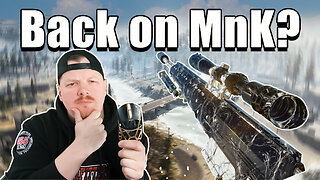 21:22
21:22
GritsGG
17 hours agoPlugged in MnK on Warzone & We Hit Shots!
175K5 -
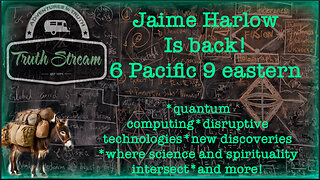 1:23:30
1:23:30
TruthStream with Joe and Scott
2 days agoJaime Harlow is back! #483
22.1K21 -
 1:32
1:32
Gaming on Rumble
2 days agoWhat is the Rumble Creator Program?!?! | Lvl UP
69.9K4 -
 10:34:09
10:34:09
Rallied
16 hours ago $21.66 earnedSolo Challenges ALL DAY
270K9 -
 1:39:43
1:39:43
Brandon Gentile
2 days agoTOP Money Expert: Bitcoin Will Keep Setting All-Time Highs Beyond $10m
24.5K3 -
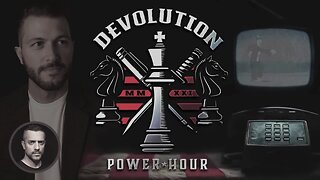 2:02:28
2:02:28
Badlands Media
1 day agoDevolution Power Hour Ep. 385: Trump “Death” Hoax, Supreme Court Tariffs Fight, and Tech-Military Ops
80.5K41 -
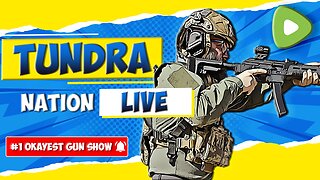 1:56:48
1:56:48
Tundra Tactical
10 hours ago $17.12 earnedFull Semi-Auto Comedy Hour
46.3K3 -
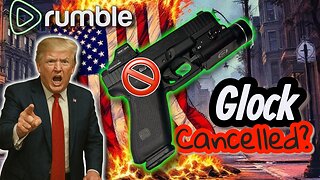 1:55:52
1:55:52
BlackDiamondGunsandGear
1 day agoGlocks Want Gun Control? // Trump Tramples on your Rights? // After Hours Armory
36.9K6 -
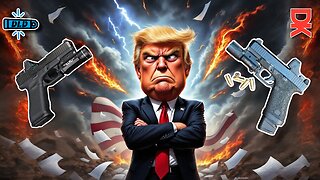 1:55:52
1:55:52
DLDAfterDark
15 hours ago $5.91 earnedDLD Live! Trump - Flag Burning - Glock & Gun Control - Martial Law Light?? - After Hours Armory
29.3K4